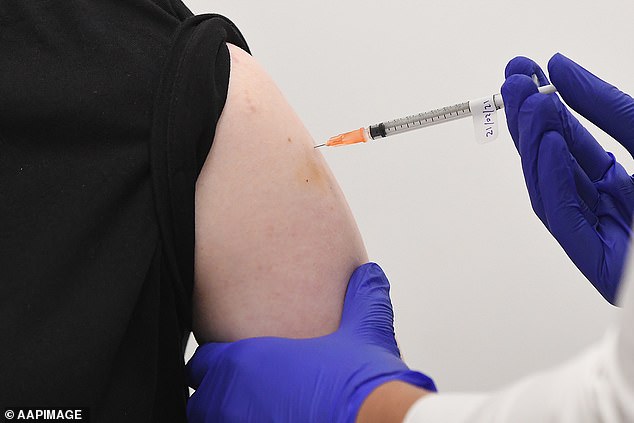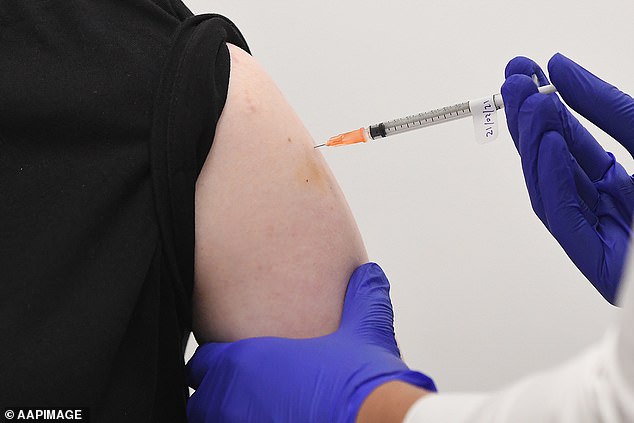Covid vaccine offers little protection against infection after six months, latest data shows



A study has found that Covid vaccines prevent less than one in 10 infections six months after administration.
New Zealand researchers reached the conclusion after reviewing data from more than 5 million people from December 2020, when the jabs were first administered in the country, to February last year.
Four million of them were vaccinated, and about a million never got a Covid vaccine. Vaccinated people were matched by age and sex with people who were not vaccinated.
Scientists then assessed the effectiveness of the shots against various Covid outcomes, including infection, hospitalisation and death, using patient data.
Publish their findings in the New Zealand Medical Journalthe researchers assessed the results based on people who received the second Covid booster.

New Zealand researchers reached their conclusion after reviewing data from more than 5 million people from December 2020, when the jabs were first administered in the country, to February last year
Although the vaccine provided lasting protection against death from the virus, protection against infection appeared to decrease dramatically.
In the first month people received the jab, it was found to stop 57 percent of infections, but this dropped to just 9.9 percent six months later.
Protection against hospitalisation due to Covid-19 was better based on vaccinations, although a significant decline was also recorded.
Vaccinated people had an 82 percent protection against hospitalization with the virus in the first month after they got it, but this dropped to just 49 percent by month six.
The authors noted that there were no Covid deaths in the vaccinated cohort that received the second booster, making a comparative analysis of this outcome not possible.
This is not the first study to show that the effectiveness of Covid vaccines decreases over time.
The exact figure depends on the stage of the global pandemic, which variant was circulating at the time and can also vary by brand.
A 2021 US study found that the effectiveness of Covid vaccines used in the US dropped from 85 percent to around 50 percent within six months.
A study from Qatar, also from 2021, even found that Pfizer’s Covid vaccine was only 20 percent effective in preventing infection after six months.
Covid vaccines, which ended crippling lockdowns, are losing their protective power due to two factors.
First, the initial flood of antibodies the body produces that target the Covid virus diminishes over time, but experts say some protection remains in the long term.
Second, the virus itself evolves over time. New variants emerge with small differences that make them more resistant to the protection that vaccines provide against older strains of Covid.
That’s why later Covid booster campaigns have used modified vaccines designed to tackle new, now more widely circulating, strains of the virus.

In the first month, the jab was found to stop 57 percent of infections among Kiwis who received it. But this dropped to just 9.9 percent six months later
The phenomenon of waning protection is not unique to Covid, by the way. That’s why some people, such as the elderly and healthcare workers, are offered a new flu vaccine every year that’s designed to combat the new versions of the virus that are spreading.
It should also be noted that the same basic problem occurs with natural immunity to Covid infection: this protection also decreases over time.
The authors noted that while their study was strengthened by the large number of participants and the reliable, publicly supported data, it also had a number of limitations.
First, the decreasing number of unvaccinated people could have affected the results, leading to a possible overestimation of the vaccine’s effectiveness.
Another reason was that they couldn’t track which specific brand of Covid vaccine people had received, meaning that any differences based on this metric couldn’t be measured. However, they did note that the majority of people had received the Pfizer vaccine.
Furthermore, the authors could not distinguish between the different Covid variants, as the Omikron variant was dominant for most of the study period.
They said future studies that track the effectiveness of the shots for longer than six months and examine differences in outcomes by vaccine type and Covid variant are warranted.




